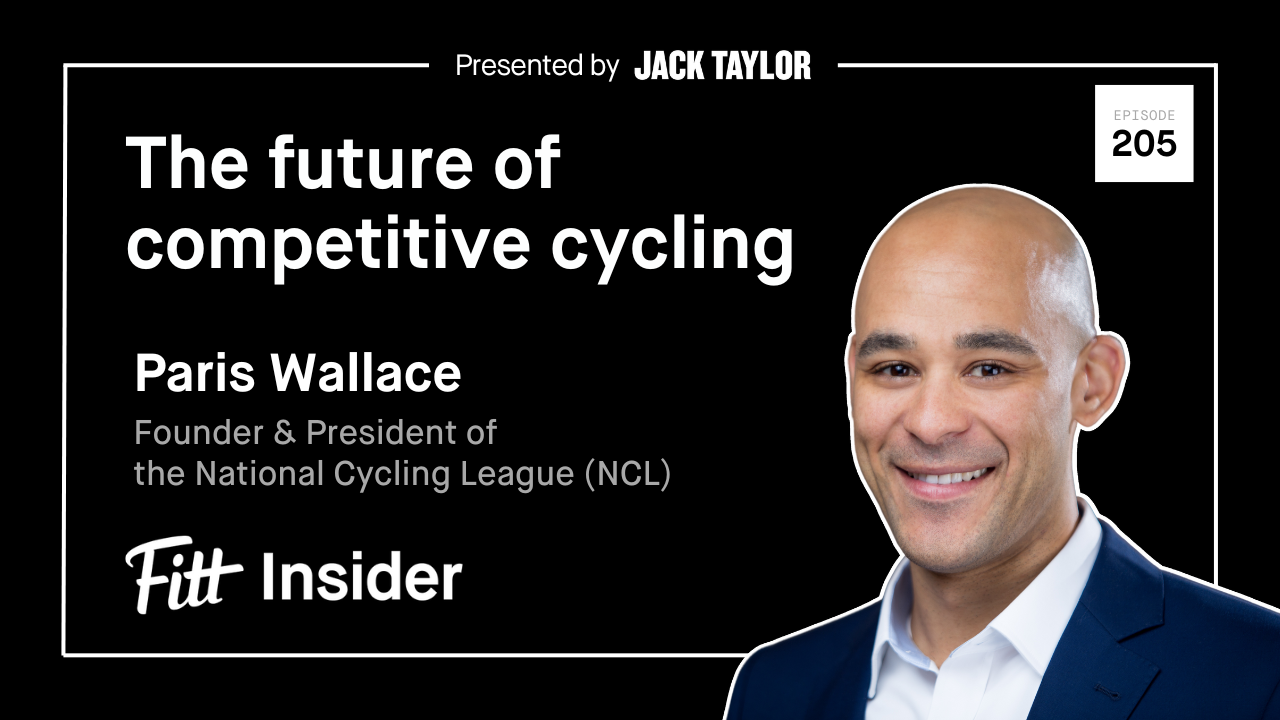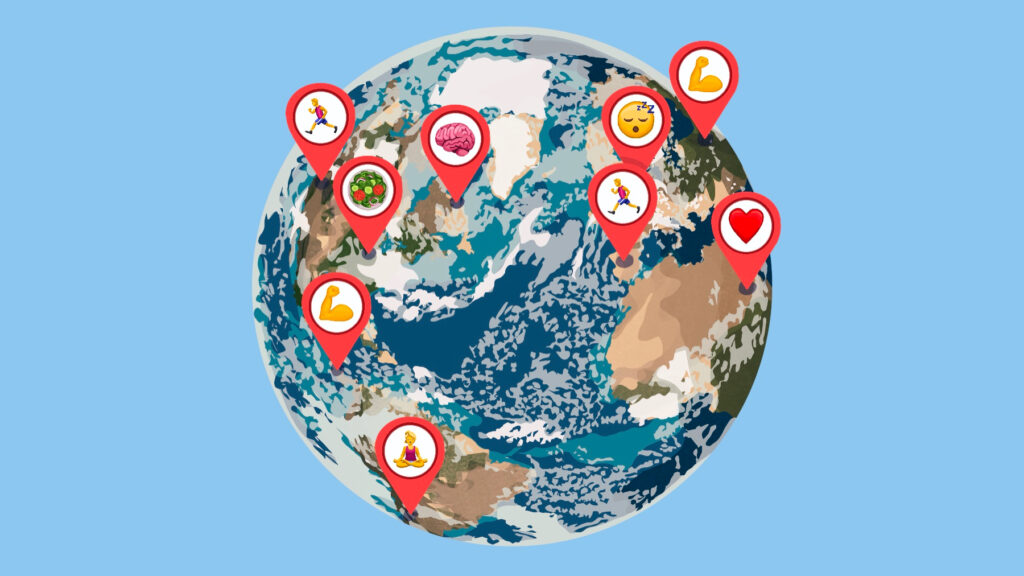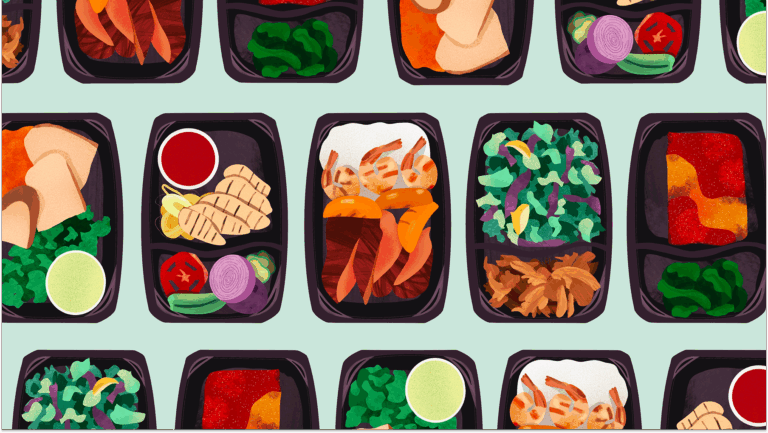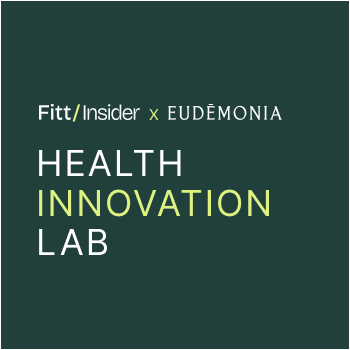
End-to-end optimization for subscription fitness businesses.
The pursuit of well-being isn’t going well.
Unwell
Assessing attitudes toward physical, mental, and social health, lululemon surveyed 14K people across 14 countries for its latest Global Wellbeing Report.
The topline: While definitions vary, worldwide well-being isn’t improving. Worse, more people worry it’s growing out of reach.
- 67% say well-being is a top priority; 77% take personal responsibility to improve it.
- Only 12% say their well-being is where it should be.
- 44% believe actually achieving overall well-being may be impossible.
On a macro scale, over three years of data, cumulative well-being scores have remained stagnant.
On an individual level, it’s a disaster, with 34% feeling well-being is lower than ever.
The Wellness Dilemma. While more people are actively pursuing well-being, the process has become overwhelming — with a lack of time, cost concerns, and societal stigma cited as persistent barriers.
More revealing, while half of respondents feel intense societal pressures to achieve peak well-being, the majority say institutions like the government, media, and employers aren’t doing enough to support them — leading the report authors to propose a different path forward:
“It’s time to introduce a softer take on self-care—one where the journey towards being well includes enjoyable, simple acts of movement, mindfulness and connection.”
Work in Progress
Speaking out, teaming up, and breaking a sweat could be key to stopping the spiral.
Open up. Top of mind, 62% agree expressing one’s full range of emotions is necessary for strong mental well-being. Yet, the majority remain guarded, bottling emotions and pretending to be happy for fear of being judged — a problem most common among men.
Even as therapy waitlists fill, the crisis deepens: 53% are unmotivated to participate in hobbies and 46% struggle to get out of bed, emphasizing the need for meaningful connection beyond the screen.
Join the movement. Combining a sense of belonging with the benefits of physical activity, social fitness is proving to be the perfect antidote to hopelessness.
- 65% say moving their body improves their mental health.
- ~50% turn to their community for exercise, which plays an active role in improving well-being.
- 50% of those with high well-being work out with others more now vs. pre-pandemic.
Of note, with 67% wishing to feel unconstrained during exercise and 57% preferring mindful movement over strict regimens, brands that blend aspects of strength, recovery, and flexibility will benefit, while free run clubs and exercise groups can help fill the void.
Complicating matters… Whenever well-being is low, nearly 60% say they cannot live life to the fullest or be the best version of themselves. For those with disabilities, people of color, and the LGBT community, the effects are even greater while accessibility is more limited.
Punchline: If we don’t have well-being, what do we have? For many, that question remains an unresolved internal battle. Giving voice to that struggle while promoting holistic health, brands have to prove the pursuit of wellness can deliver positive change beyond profits.
🎙 On the Podcast

Paris Wallace, founder and president of the National Cycling League, discusses plans to revolutionize the sport’s US presence.
Under Wallace’s leadership, the NCL is leveraging technology, diversity, and community to cultivate a fandom of the future. This year, it kicked off its inaugural season with noteworthy backing from NBA star Kevin Durant, NFLer Jalen Ramsey, and DraftKings CEO Jason Robins, among others.
We also cover: the NCL’s gender-equal approach, the four pillars of a successful sports league, and engaging amateurs in the metaverse.
Listen to today’s episode here.
🤖 WHOOP launches AI-powered coach
The wearable maker unveiled WHOOP Coach, a personalized 24/7 health coach powered by Open AI’s GPT-4. Among its features, it…
- Translates unique goals, biometric data, and WHOOP Journal entries into hyper-specific health and fitness plans
- Dissects data across baselines to link behaviors with predicted physiological responses
- Answers open-ended health, fitness, science, and membership-related questions
Of note, WHOOP Coach builds on Strength and Stress features released earlier this year, providing custom insights spanning all areas of wellness.
Why it matters: Pushing past surface-level insights, generative AI makes it easier for wearable users to understand and adapt their behaviors toward desired outcomes.
And, ease of use will be key to adoption as the tech expands beyond optimizers to help casual exercisers boost everyday wellness, with the long-term goal of clinical integration.
Watch the throne. Competing with WHOOP, Apple plans to streamline UX with its own comprehensive smart coach. A standalone subscription, the addition would seamlessly integrate data across its smartwatch, Health app, fitness, and Journal features.
But, research has shown that a fully automated approach isn’t ideal, leaving room for human coaches to add value with empathy and accountability.
Takeaway: Tools for self-optimization are as widespread as ever, empowering consumers to track everything from sleep, stress, and blood glucose to fertility. But, with the metrics stacking up, WHOOP and Apple see AI assistance as key to avoiding overwhelm.
Presented by House of Kaizen
⚙️ End-to-end optimization
If you’re building a subscription fitness business, every touchpoint counts.
From user acquisition to conversions to retention, obsessing over the customer journey is critical to unlocking growth.
And no one knows this better than House of Kaizen.
A subscriber optimization consultancy, HoK specializes in reducing churn, driving recurring revenue, and maximizing lifetime value.
Leveraging in-depth customer research, UX design, and proven strategy frameworks, HoK delivers end-to-end optimization for fitness brands.
Perfect your growth engine: Get started with House of Kaizen now.
🤝 Vuori, Pvolve partner for community events
The apparel maker and fitness company are hosting co-branded activations to promote Vuori’s new BlissBlend fabric for women, pairing Pvolve’s signature low-impact workout with complimentary fits.
Community over intensity. Both young and in expansion mode, Vuori and Pvolve share laid-back attitudes toward athleticism, making for a smart community crossover.
Pvolve made waves in June when Jennifer Aniston joined as an advisor, but even before, it was ramping up hybrid offerings with the aim of 250 studios by 2025.
Meanwhile, Vuori’s adding 25 store openings a year as it pushes global growth, with a strategy hinged on introducing the brand through hyperlocal fitness events.
Of note, Vuori started as a men’s-only brand but now sees half its sales from women, making a partnership with female-focused Pvolve particularly valuable.
Zooming out: An omnichannel strategy anchored by IRL experiences is a proven playbook for activewear companies aspiring to be lifestyle brands.
- Alo reached cult status with exclusive retreats and experiential retail, enabling entry into skincare, supplements, and more.
- On Running’s global Track Nights (more Coachella than commerce) invite community over live music, food trucks, and world-class track talent.
- Breeding belonging, Tracksmith stores even offer free locker storage for group training participants.
The ROI on connectedness can’t be overstated. Beyond serving an antidote to loneliness, brand-sponsored social fitness events drive evangelism in an oversaturated athleisure market.
Punchline: All in on omnichannel, Vuori is using brick-and-mortar to build community and showcase the lifestyle behind the label. And, already valued above $4B, its plan is paying off.
📰 News & Notes
- Strava’s Nike workout tracking integration is live.
- TrueMed launches HSA/FSA payment integration.
- Life Time opens fourth wellness living complex in CT.
- Universal Music Group targets wellness partnerships.
- Fitt Jobs: New roles from top health and fitness companies.
- Startup Q&A: NatureQuant CEO Jared Hanley on nature as therapy.
- Costco enters healthcare with $29 virtual visits. [Re-read: Retail Care]
- Lifestyle brand Sporty & Rich enters beauty. [Re-read: Wellness Outfitters]
- Orangetheory lands former Strava marketing exec; Peloton adds new apparel lead.
💰 Money Moves
- Virtual digestive healthcare company Vivante Health closed a $31M Series B round led by Mercato Partners.More from Fitt Insider: Startups Tackle Gut Care
- Better-for-you snack brand LesserEvil added undisclosed funding from Aria Growth Partners and others.
- TeachMe.To, a platform connecting beginner athletes to local coaches, secured $2M in a seed round led by 1984 Ventures.
- Sugar-free caffeinated gum brand REV GUM closed a $6M Series A round led by YETI Capital, with participation from cyclist Lance Armstrong.
- ASENSEI, a B2B motion capture platform for digital fitness products, added undisclosed funding from existing investors KB Partners and Seventy Six Capital.
- Cartwheel, a student mental health platform, landed $20M in a Series A round.
- Endurance sport brand Spartan Race acquired the Obstacle Course Racing World Championships.
- Humble Growth, a healthy CPG investment firm from the founders of Orgain and RXBAR, debuted with a $312M fund.
- Trailhead Capital launched a $50M regenerative agriculture fund with support from Rodale Institute, The Rockefeller Foundation, and more.
- NorthStar Care, a virtual alcohol rehab program, raised $6M in a seed round led by Tony Robbins and Starting Line.
- Addiction recovery platform Kyros added $10.5M in a funding round led by Rally Ventures.
Today’s newsletter was brought to you by Anthony Vennare, Joe Vennare, Ryan Deer, and Jasmina Breen.






